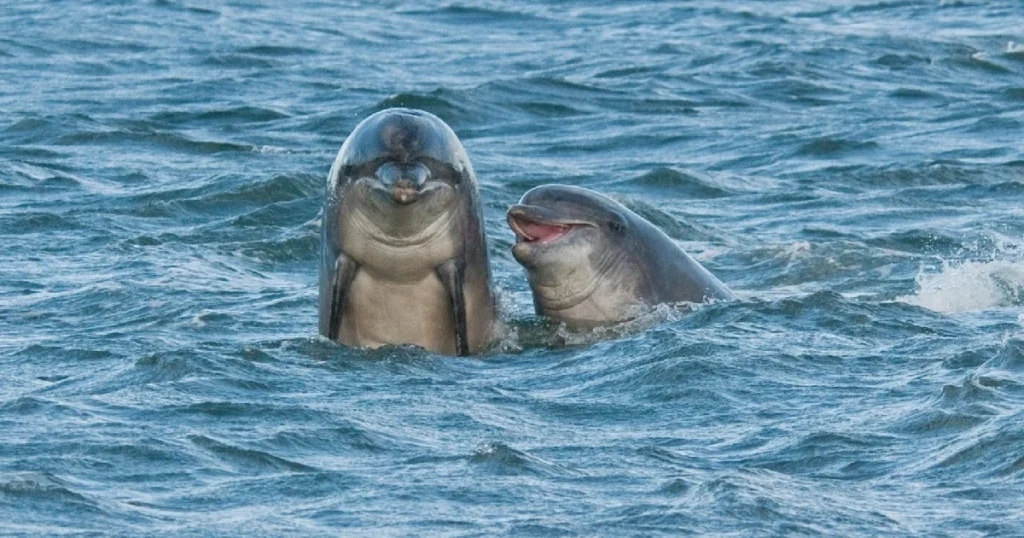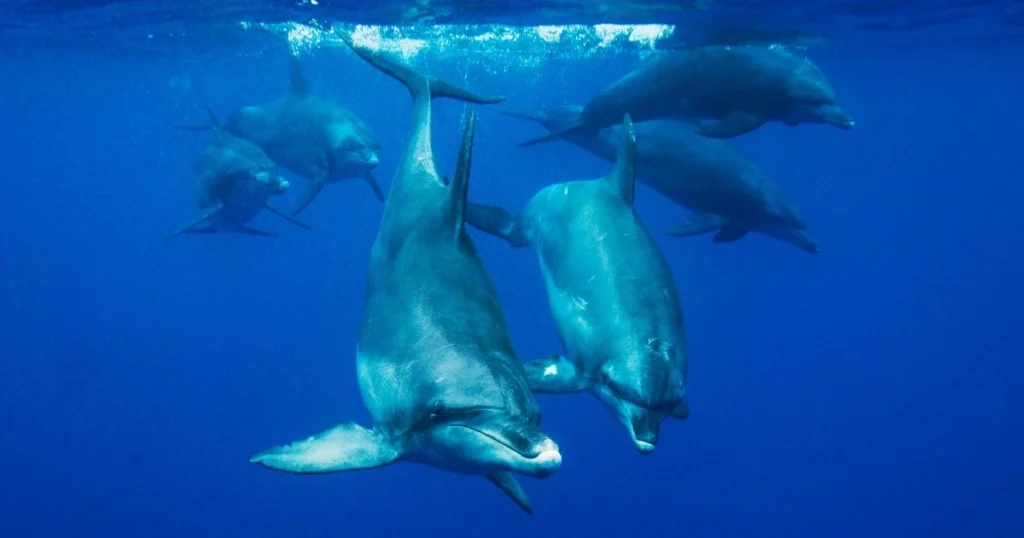
In recent years, the internet has been abuzz with debates and discussions surrounding dolphins' moral character. A pressing question arises: are dolphins evil? Various articles and forums have surfaced, questioning whether these intelligent marine mammals are as benevolent as they are often portrayed. However, we aim to set the record straight and debunk the myth that dolphins are inherently evil creatures.

Dolphins are renowned for their remarkable intelligence, often compared to humans and great apes. Their complex social structures, intricate communication systems, and problem-solving abilities have fascinated scientists and researchers for decades. Studies have shown that dolphins possess self-awareness and exhibit behaviors indicative of higher cognitive functions.
Are dolphins mean? Contrary to popular belief, dolphins are not malevolent but exhibit altruistic behaviors. One notable example is their tendency to assist injured or distressed individuals within their species and towards other marine creatures. Dolphins protecting humans from sharks or guiding lost swimmers back to shore exemplify their compassionate nature.
Some people ask: why are dolphins bad? Short answer: they are not. Dolphins play a crucial role in maintaining the balance of marine ecosystems. As apex predators, they help regulate the populations of prey species, preventing overpopulation and preserving biodiversity. Additionally, their feeding habits contribute to nutrient cycling in the ocean, ultimately supporting the health of marine habitats.
Despite their enduring popularity, dolphins face numerous threats in the wild, including habitat loss, pollution, climate change, and human activities such as fishing and marine traffic. As stewards of the planet, we are responsible for protecting and conserving these majestic creatures for future generations. This includes advocating for marine protected areas, implementing sustainable fishing practices, and raising awareness about the importance of dolphin conservation.
Scientific research is pivotal in furthering our understanding of dolphins and informing conservation efforts. Ongoing studies focus on various aspects of dolphin behavior, physiology, ecology, and genetics, providing valuable insights into their complex lives. By employing advanced technologies such as satellite tagging, underwater acoustic monitoring, and DNA analysis, researchers can track dolphin movements, study their communication patterns, and assess population dynamics.
Furthermore, collaborative efforts between scientists, conservationists, policymakers, and local communities are essential for effective dolphin conservation. Initiatives such as community-based ecotourism, habitat restoration projects, and public education campaigns can foster greater appreciation and stewardship of marine ecosystems.

As interest in dolphin encounters grows, it is essential to prioritize ethical considerations and ensure the well-being of dolphins in human care. Responsible ecotourism operators adhere to strict guidelines and best practices to minimize disturbance to wild populations and mitigate potential negative impacts. Additionally, ongoing research into dolphin welfare and behavior informs the development of industry standards and regulations to safeguard these animals.
If you're facing wildlife or pest removal issues on your property, seeking professional assistance is crucial. Critter Stop, a professional humane wildlife removal company, offers expert services to safely and effectively address your concerns.
With a fantastic reputation and customer reviews online, Critter Stop provides high-quality work and great customer service. Call Critter Stop at (214) 234-2616 for a free inspection, and let them solve your wildlife removal problem with care and expertise.
In conclusion, the idea that dolphins are evil is a baseless myth perpetuated by misconceptions and sensationalism. Through their intelligence, altruistic behaviors, ecological importance, and cultural significance, dolphins enrich our lives and contribute to the health of marine ecosystems. We must debunk such myths and instead recognize and appreciate the true nature of these remarkable creatures.
As experts in wildlife management, we understand the importance of addressing common misconceptions surrounding animal behavior. Here are some frequently asked questions about dolphins' perceived negativity, debunked with facts and scientific insights:
Contrary to popular belief, dolphins are not inherently mean. They exhibit complex social behaviors and are known for their intelligence and empathy toward humans and other marine life.
Dolphins are not inherently bad; misunderstandings and sensationalized media portrayals have contributed to the perception of their negativity. In reality, dolphins play a vital role in maintaining marine ecosystems.
While dolphins are powerful marine predators, they typically pose no threat to humans. Aggression towards humans is rare and often occurs in captivity due to stress or unnatural conditions.
Like other social animals, Dolphins may exhibit hierarchical behaviors within their pods. However, bullying is infrequent and usually related to dominance or mating behaviors.
While dolphins may exhibit aggressive behaviors in certain situations, such instances are rare and often result from environmental stressors or human interference.
Dolphins, like any other species, may engage in behaviors that can be perceived as negative. However, some bad things dolphins do are typically related to their pods' survival instincts or social dynamics.
Yes, dolphins exhibit a wide range of social behaviors in the wild, including cooperation, communication, and altruism. They play a crucial role in maintaining the health and balance of marine ecosystems. Some mean dolphins are out there, but they are more of an exception than a rule of thumb.
Some behaviors exhibited by dolphins, such as aggressive interactions or territorial displays, may be misinterpreted as negative by individuals unfamiliar with their natural behaviors. However, these behaviors are often part of their complex social dynamics and instincts.
As a professional humane wildlife removal company, Critter Stop understands the importance of accurate information about wildlife behavior. If you have concerns about wildlife or pest issues on your property, don't hesitate to contact us for expert assistance.
Visit our Critter Library and learn more about our furry friends